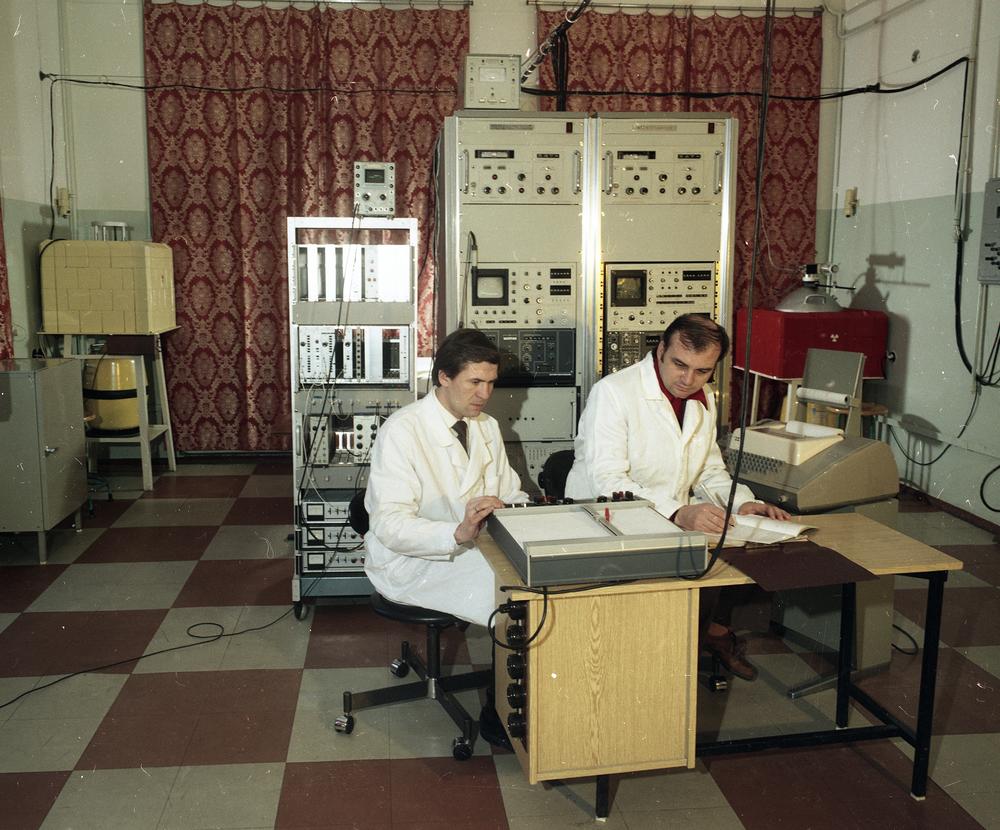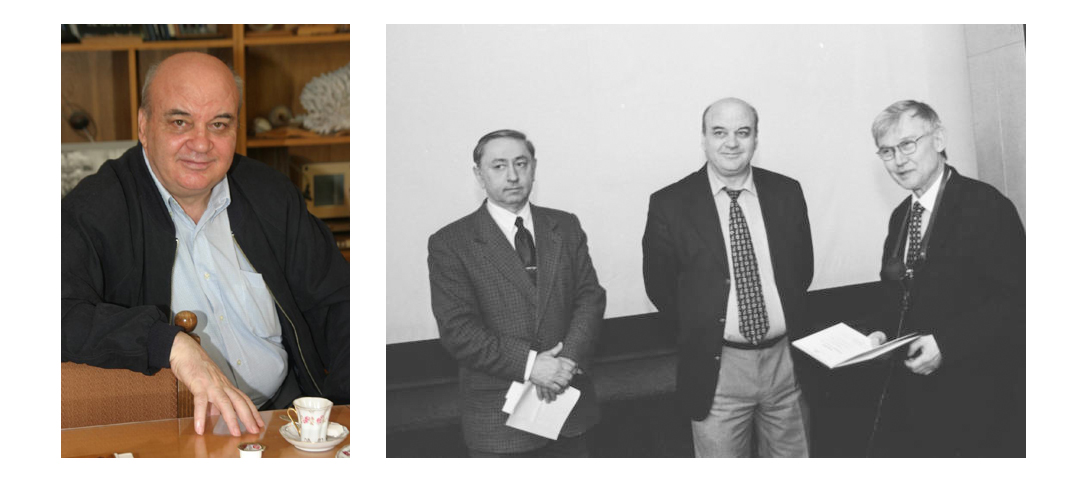Remembering founders: Tsvetan Vylov
News, 13 July 2022
On 13 July, the Joint Institute pays tribute to the famous Bulgarian scientist, Doctor of Physics and Mathematics, Professor Tsvetan Dimitrov Vylov (13.07.1941 – 13.12.2009).
Tsvetan Dimitrov Vylov began his career at JINR in 1968 as a junior researcher in the Scientific-Experimental Department of Nuclear Spectroscopy and Radiochemistry of the Laboratory of Nuclear Problems (SEDNS@RC LNP) after graduating from the Physics Department of Leningrad State University and serving in the army. Tsvetan Vylov became Head of the Department where he worked in 1984, Director of the Laboratory in 1988, and Vice-Director of JINR from 1992 to 2005, taking part in the management of the Institute during its most difficult years.
In his early years in SEDNS&RC, he was actively involved in a wide range of nuclear-radiation precision spectrometry activities, which he later supervised, including the creation of a unique electrostatic beta spectrometer with record energy resolution. The developed methods and spectrometers were used for basic research into the properties of atomic nuclei and processes of radioactive decay of nuclei. The findings of the research were published as an atlas of radiation spectra of radioactive nuclides, which is widely used by experimental physicists and specialists in applied nuclear physics. Most of the results obtained are recorded in the registry of state standard reference data.
Tsvetan Vylov pioneered a new line of research at JINR, non-accelerator neutrino physics. In particular, Ts. D. Vylov was one of the organizers of the international conference “Non-Accelerator Neutrino Physics” (NANP). He led experiments to measure neutrino helicity and research into the role of the natural width and form of electron lines in experiments on measuring the antineutrino mass. Under Ts. D. Vylov, experiments were initiated to search for double neutrinoless beta decay using a unique telescope consisting of semiconductor HPGe-detectors and NEMO facility. In later years, the scientist took part in reactor antineutrino activities and in the work to create a new-generation facility, SuperNEMO, to study double neutrinoless beta decay with record sensitivity.
 Ts. Vylov and V. M. Gorozhankin produce data of the precision spectrometry complex as output on a graph plotter.
Ts. Vylov and V. M. Gorozhankin produce data of the precision spectrometry complex as output on a graph plotter.
Ts. D. Vylov’s particular merit is the widespread introduction of the first personal computers in JINR in the mid-1980s.
In addition to his scientific and organizational activities, Ts. D. Vylov contributed significantly to the training of competent scientific staff and supervised a number of candidate and doctorate dissertations.
As JINR Vice-Director, the scientist paid much attention to widening and strengthening JINR’s cooperation with scientific centres of JINR Member States and partner countries. His colleagues and comrades noted not only his profound professional knowledge, but also his exceptional human qualities: responsibility, high capacity for work along with the personal charm and friendliness to the people around him.
Professor Vylov’s merits are recognised with state awards: the Order of Cyril and Methodius (Bulgaria, 1981), the Order of Friendship (Russia 2006), and the Medal “50 Years of Poland’s Participation in JINR”. One of the alleys at the JINR DLNP site is named after Tsvetan Vylov.

